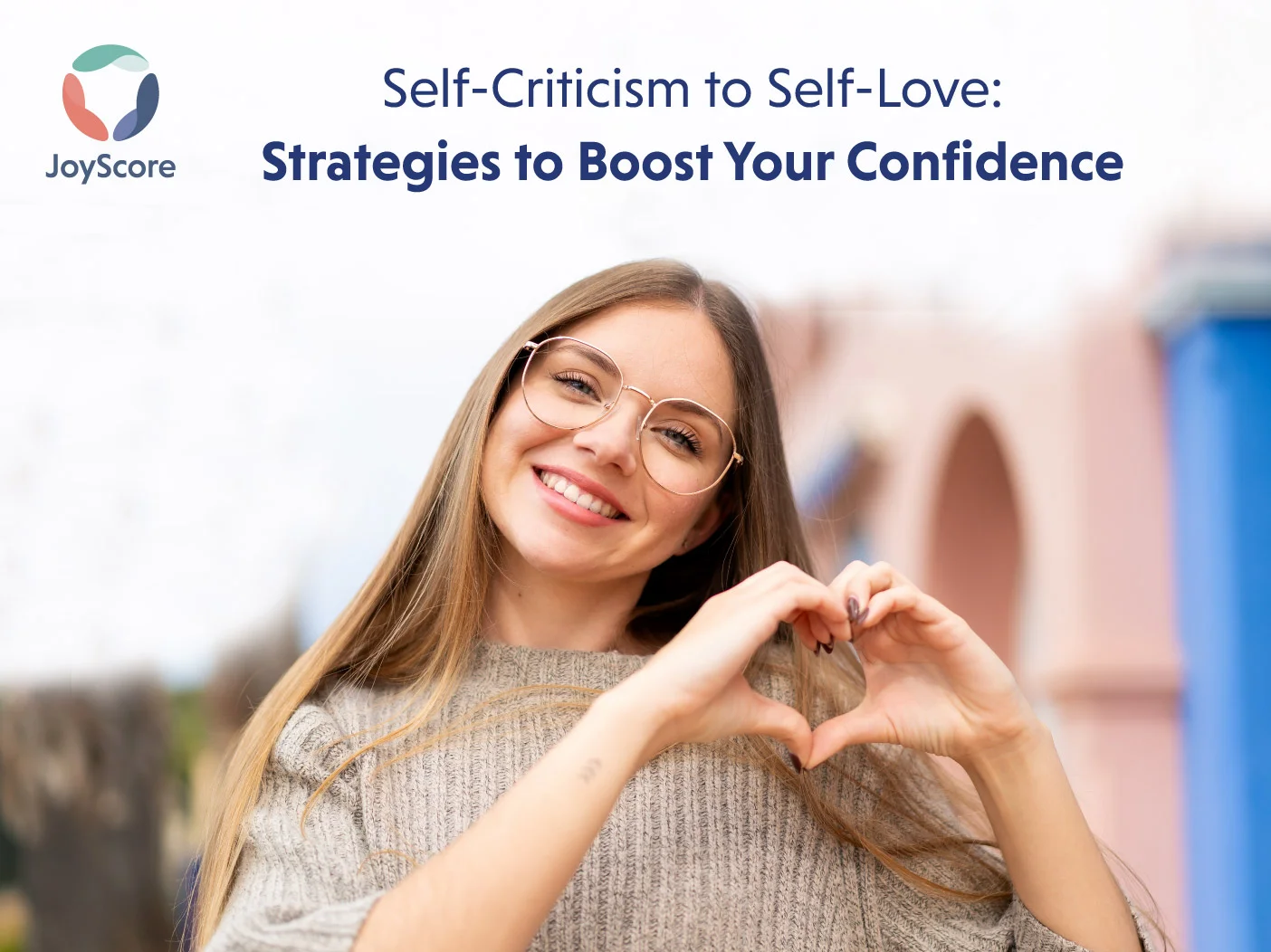‘Self-criticism is a common phenomenon that affects many people across the world. It is a habit of constantly judging oneself, often leading to low self-esteem, anxiety, and depression. Self-criticism can be a destructive cycle that is hard to break. However, the right strategies can break this cycle and cultivate self-love and acceptance. This guide will explore some of the most effective techniques for cultivating self-love and acceptance. From mindfulness practices to positive affirmations, we’ll provide the tools to start loving yourself more and criticizing yourself less.
Understanding self-criticism
Self-criticism is a habit of constantly judging oneself, often leading to low self-esteem, anxiety, and depression. It is a destructive cycle that can be hard to break. It is essential to understand the root of self-criticism to break this cycle. Self-criticism often stems from early childhood experiences, such as parental criticism or bullying. It can also stem from societal and cultural pressure to conform to specific beauty standards, success, and status. Understanding the root cause of self-criticism can help develop effective strategies to overcome it.
The adverse effects of self-criticism on mental health
Self-criticism can have a detrimental effect on an individual’s mental health. When someone constantly engages in self-criticism, they are essentially beating themselves up emotionally. It may result in emotions of incompetence, reduced self-worth, and in some cases, even depression. The constant negative self-talk can also make it difficult to form positive relationships with others and even impact a person’s ability to perform at their best. The pressure of self-criticism can also lead to anxiety and stress, negatively affecting physical health. Individuals must recognize self-criticism’s harmful effects and develop a more positive and self-compassionate mindset. Seeking help from a mental health professional may also benefit those struggling with self-criticism.
Criticizing oneself can heavily influence one’s mental health, resulting in reduced self-esteem, depression, anxiety, and even thoughts of suicide. When we constantly criticize ourselves, we create a negative self-image that affects our mental and emotional well-being. Self-criticism can also lead to a lack of confidence and self-doubt, making it hard to achieve our goals and pursue our dreams.
Recognizing and challenging negative self-talk
Break the circle of self-criticism by identifying and confronting negative self-talk. It is essential to identify negative self-talk patterns to challenge and replace them with positive self-talk. One way is to write down negative self-talk and challenge it with rational and compassionate thoughts. Another way is to question the validity of negative self-talk, asking, “Is this thought true? Is it helpful?” Challenging negative self-talk helps in creating a positive self-image and build self-confidence.
Cultivating self-compassion
Cultivating self-compassion is an important aspect of personal growth and well-being. It involves being kind and understanding toward oneself, especially during difficult times. Self-compassion is not the same as self-indulgence or self-pity; instead, it is a way to acknowledge and validate one’s struggles and emotions without judgment. It involves treating oneself with the same warmth and care that one would offer to a dear friend. Developing self-compassion can be challenging for some individuals who are used to being self-critical, but it can be achieved through mindfulness, meditation, and self-reflection. By cultivating self-compassion, individuals can improve their emotional resilience and overall quality of life.
Self-compassion involves the act of being understanding, kind, and accepting towards oneself. It is essential in breaking the cycle of self-criticism and building self-love. Self-compassion involves acknowledging one’s struggles and weaknesses without judgment and criticism. It is a way of creating a supportive and nurturing inner voice that encourages self-growth and self-acceptance. Self-compassion can be cultivated by practicing mindfulness, self-care, and positive affirmations.
The importance of self-care in building self-love
Self-care is the foundation for building self-love. It involves taking deliberate and conscious actions to prioritize your physical, mental, and emotional well-being. When you engage in self-care practices, you show yourself love, compassion, and respect. This, in turn, creates a positive cycle of self-love, where you feel more connected and comfortable in your skin. When you prioritize self-care, you invest in your own growth and development, which helps you build a stronger sense of self and a more positive self-image. As a result, you become more resilient, confident, and empowered to face life’s challenges. Therefore, self-care is crucial for building a healthy and sustainable relationship with yourself, which is the foundation for all other relationships.
Cultivating self-love and self-compassion is crucial to prioritize self-care, which encompasses caring for oneself physically, emotionally, and mentally. Self-care can range from simple activities like taking a soothing bath, walking, or spending time with loved ones to more deliberate practices like meditation, yoga, or therapy. Engaging in self-care is vital for reducing stress and anxiety, improving mental health, and fostering self-love.
Surrounding yourself with positive influences
Surrounding oneself with positive influences is essential in building self-love and confidence. It involves spending time with people who uplift and support us, such as friends, family, and mentors. Positive influences can also come from books, podcasts, and social media accounts that promote self-love and acceptance. Surrounding oneself with positive influences helps create a supportive and nurturing environment that encourages self-growth and self-acceptance.
Mindfulness and meditation practices for self-love

Practicing mindfulness and meditation can be powerful tools for developing self-love and acceptance. Mindfulness involves fully engaging in the present moment without judgment or criticism towards one’s thoughts, leading to improved self-awareness and compassion. Meanwhile, meditation consists in focusing on a specific object, like the breath or a mantra. It has been found to reduce stress and anxiety, improve mental well-being, and foster self-love.
Building a support system

Building a support system is essential in breaking the cycle of self-criticism and building self-love. It involves seeking help from friends, family, or professionals when needed. A support system can provide encouragement, advice, and emotional support, making it easier to overcome challenges and achieve goals. Building a support system helps create a sense of belonging and connection, promoting self-love and acceptance.
Seeking professional help for self-criticism and low self-esteem
If self-criticism and low self-esteem affect your daily life and well-being, seeking professional help is essential. Therapy and counseling can help identify and address the root of self-criticism and develop effective strategies to overcome it. A mental health professional can provide support, guidance, and resources that promote self-love and acceptance.
Conclusion Self-criticism is a destructive cycle that can be hard to break. However, it is possible to cultivate self-love and acceptance with the right strategies. Understanding the root of self-criticism, recognizing and challenging negative self-talk, cultivating self-compassion, practicing self-care, surrounding oneself with positive influences, practicing mindfulness and meditation, building a support system, and seeking professional help are effective strategies for breaking the cycle of self-criticism and building self-love. Practicing these strategies allows you to break free from negative self-talk, embrace your true worth and potential, and live a fulfilling and joyful life.



